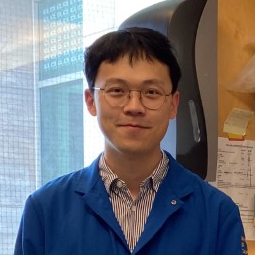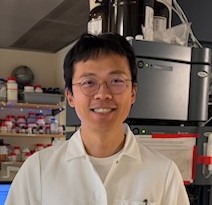Dr. Zheng [Connie and Bob Lurie Fellow] is developing small molecules that selectively inhibit the protein K-Ras(G12D). Pancreatic ductal adenocarcinoma (PDAC) is the most lethal common cancer due to the infrequency of early diagnosis and the lack of targeted or immune therapies. A high percentage (>90%) of PDAC patients harbor KRAS mutations, with the majority expressing the K-Ras(G12D) missense mutation. Despite extensive drug discovery efforts across academia and industry, there are no approved drugs directly targeting oncogenic K-Ras(G12D). K-Ras lacks an apparent surface topology for reversible small molecule binding, leading to its notorious characterization as “undruggable.” Dr. Zheng is searching for small molecules that form a permanent bond with the mutant protein at its missense site and inhibit its interaction with effector proteins.
Pancreatic Cancer
Current Projects

There are two key types of cancerous mutations: one that turns on growth signals too strongly, like a car with a stuck accelerator, and the other that turns off safety mechanisms, like a car with broken brakes. While some cancers can be treated with drugs that block overactive growth signals—such as Gleevec for chronic myeloid leukemia—there are currently no effective treatments for cancers caused by the loss of these safety mechanisms, also known as tumor suppressor genes. Notably, mutations in TP53, one of the most common tumor suppressor genes, are abundant in almost all cancers, including breast, lung, and ovarian cancers. Dr. Zheng’s research focuses on reactivating these impaired tumor suppressor genes, such as TP53 and FBXW7, to develop new treatment options for a wider range of cancers and to address resistance to existing therapies.







